The Utterance of Disruption
The theatrical dialogue in Sharmistha Saha’s ‘Her Letters’, based on Rabindranath Tagore’s short story Streer Patra, is a study of the transformative power of silence and its performative landscape. Through three personal narratives, we enter this now-forgotten world of ‘letters’ and the silence it contains
Sharmistha Saha
Letter writing has historically seen a significant shift with the coming of digital communication. From once being a prescribed form of writing especially for women in the eighteenth century, for example, today we see a proliferation of communication that has surpassed the plausibility of writing itself and has been outdone by typing. Typing in the virtual world is a gender neuter activity and yet the pandemonium that surrounds virtual communication has silenced sayability as it were. Letter-writing’s tranquillity, according to me, makes today’s fading sayability possible, which is why I chose to work on the short story Streer Patra often translated from Bengali as ‘The Wife’s Letter’. Here the text was important to me since it opened up the possibility of speech itself and interestingly Rabindranath Tagore, the author, even seemed to have left some space for possible transformations such that a 1914 text became relevant in 2014, the year it was first performed.
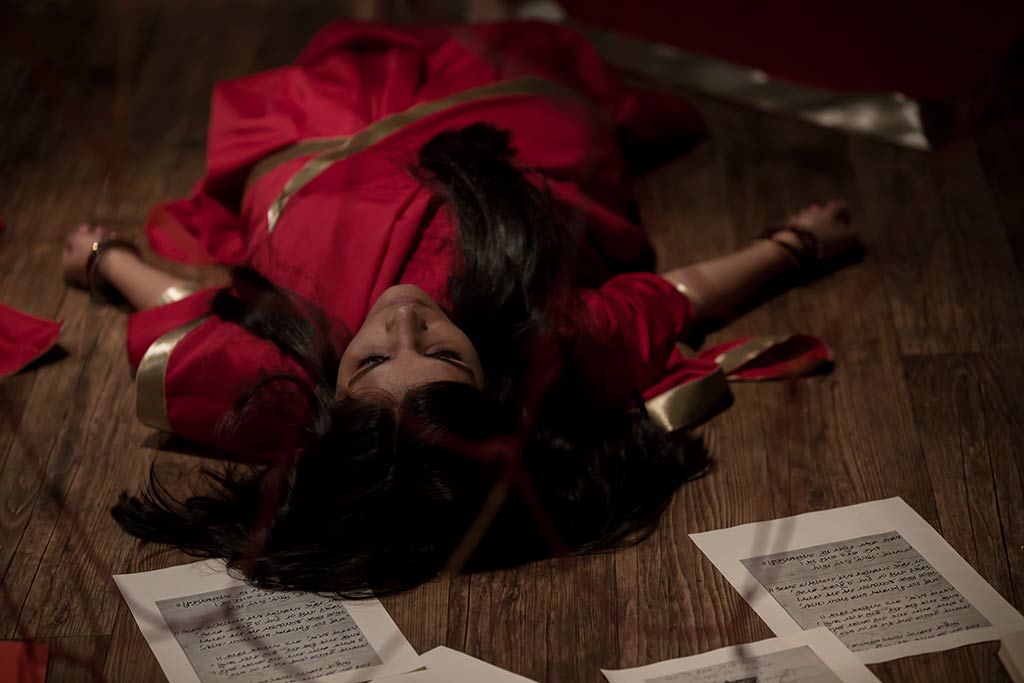
Stree in Bengali has an obvious translation that is ‘wife’, yet it could also mean any woman. ‘Her’ in English opened up this generalised possibility. ‘Her Letters’ was the erasure of silence of anyone who identified with ‘her’. Therefore, the play became the store-house of multiple voices, a community of those who have so far been silenced and who this time over has risen in utterance, in writing of letters – in that sense ‘Her Letters’ promises disruption.
Since the play’s intention was to stay with this politics of disruption, individual and extremely personal narratives became its fodder. It couldn’t have breathed at all if performers who associated with the piece had not played along sharing their stories that dealt with silencing, if not their own then of those that directly affected their lives. The problem one faced was how does one translate all these words of individual stories and those of Mrinal’s (the protagonist of Tagore’s Streer Patra) to a performance piece. How does one say with movement and presence that which experiences weave in words? Bodily metaphors were used which the performers themselves came up with. For example, Mrinal, who is also a poet, pins her poems, that secret act of revolt she indulges in, to the walls of her house, which then become symbolic of cracks that emerge in her household that she wants to break free from. The performers devised these physical metaphors where I as the director only edited them to one piece. In that sense I was working with the actor’s dramaturgy.
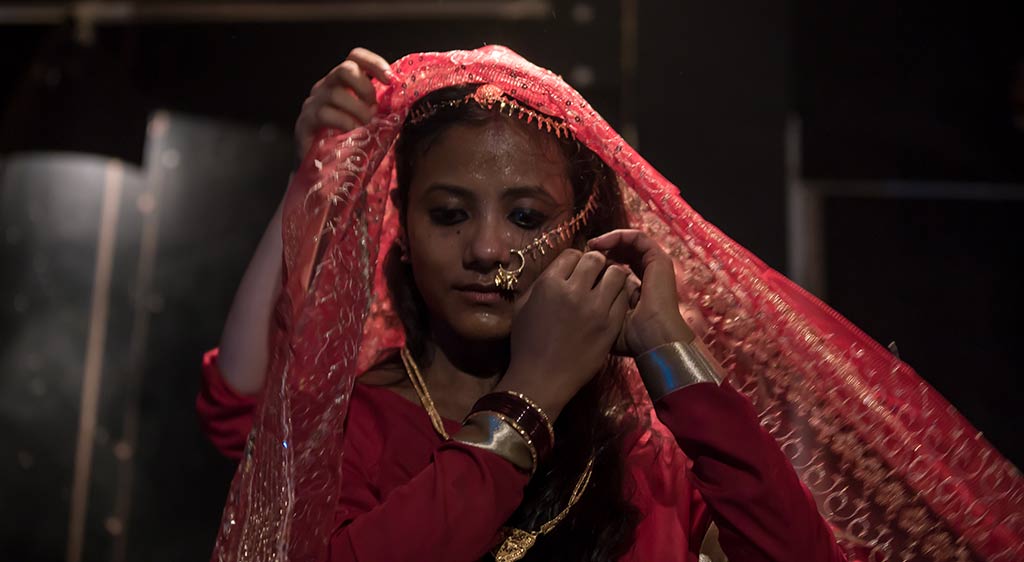
In Tagore’s Streer Patra, a literary piece, writing the letter for Mrinal becomes a ‘performative’; it demands by the end a transformation that is inherent to the logic of the ‘performative’. In ‘Her Letters’, which is a theatrical piece, the process of letter writing takes shape as doing – at least it seeks to evolve a language of ‘doing’ writing and yet it tries to remain stuck to the logic of the ‘performative’ which in case of theatre or any congregation is a process of collective transformation. Here, I would like to share two such individual experiences of transformation. Lata S. Singh joined ‘Her Letters’ at an early stage of the play’s formation in India and Bharti Perwani joined soon after in this India edition. The play was first performed in Germany in 2014 with dramaturgical contributions from Cora Guddat, Shanti Chakraborty and Anahita Izadi. Sukeerti Sharma and Manisha Mondal have also been part of ‘Her Letters’.
_______________________________________________________________________________________
Lata S. Singh
I was back in Mumbai after a year of travelling during which I worked with half a dozen theatre directors and attended their residencies, including that of Ariane Mnouchkine. Overflowing with all the learning I had gathered, I met Sharmistha when a mutual friend invited me to her workshop. After the workshop we met again in August 2016 and Sharmistha shared the idea of staging ‘Her Letters’ in Mumbai.
The process was especially difficult for the fact that both of us (Sukeerti, my co-actor and I) were asked to bare it all. We were about to improvise based on real-time experiences. Before we went on the floor, we sat and read Tagore’s Streer Patra. Two things personally occurred to me: (1) Life as ‘overlooked women’ in their own households sounded familiar to me and (2) Mrinal used her writings to express things she was not allowed to say, just like I devised acting later in my life. At first Sukeerti and I started improvising on themes like claustrophobia, discrimination, touch, liberation, household rituals, and so on. Once back home we extensively wrote on the above-mentioned themes and e-mailed each other. It is true that the raw opening up of the heart, weaving personal narratives made me weep, once in the rehearsal space and again on the way home.
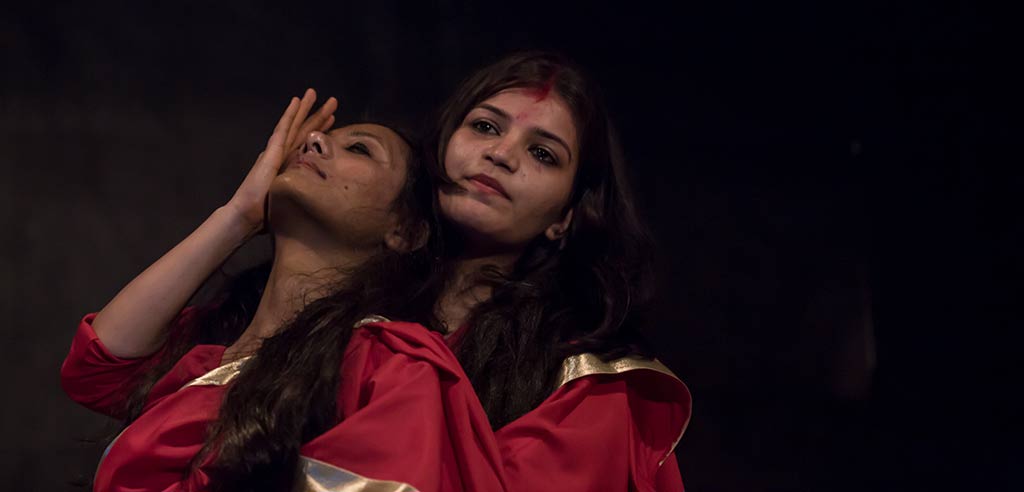
Silence in ‘Her Letters’ mirrors external events or interprets inner experiences by outward actions. We have Mrinal, who for 15 years is overlooked by her husband. For 15 years, she writes poetry under the prestigious noses of her in-laws and yet remains invisible. Then we have Bindu, who habitually shrinks as she walks past. It feels like a sacred moment when Bindu is caressed by Mrinal whose turmeric-laced fingers work her way up Bindu’s face. Their love for each other appears and becomes unbearable. Bindu becomes Mrinal’s desire for youth’s ‘radiantly healthy conscience’, which permits one to dare what one would.
We were ready to showcase in November 2016. By now in our heads, Mrinal’s letter had two distinct personalities; one that encountered the life of household activities, definable limitations, laws of time and place; the other facing celestial values, its feeling-tones and emotional ecstasies.
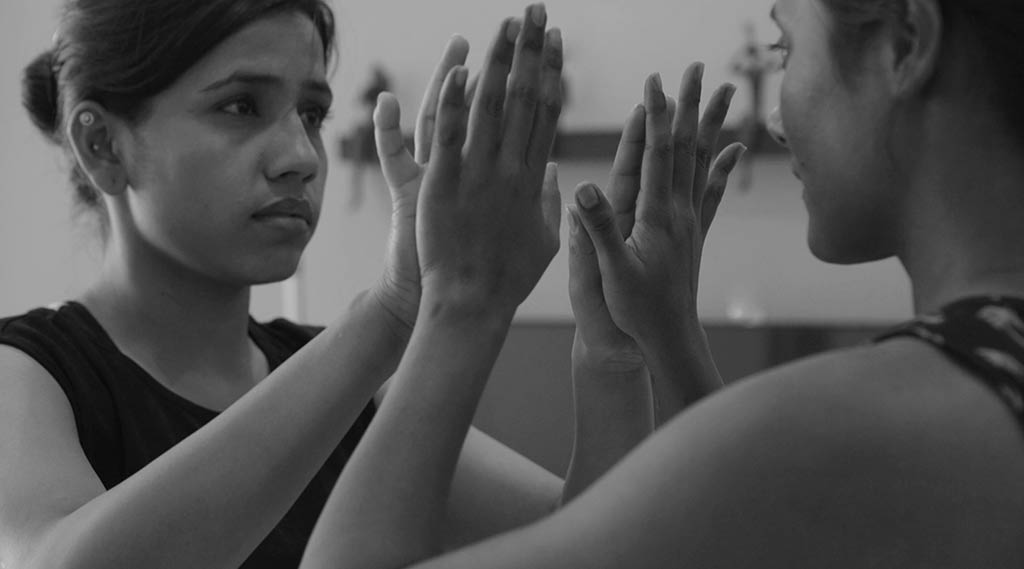
It isn’t necessary that every protest be voiced in words
Some resentments find expression in silence…
____________________________________________________________________________________
Bharti Perwani
I moved to Mumbai in 2016 after having completed training as an actor in Bhopal and the very next day I met Sharmistha. Initially my association was very formal, limited to an actor’s desire to act. But, slowly, as I got involved with the text and the improvisations, I felt a strange and challenging disconnect. I luckily belong to a family that treats women with considerable respect and, hence, I personally never felt discriminated against at home. However, I was aware of such discrimination.
I think it was through the improvisations that I first felt emotionally connected. One night I was at Sharmistha’s place rehearsing. She asked me to do a lot of warm-ups and physical exercises until I exhausted myself. I was sweating, unable to breathe, incapable of controlling my emotions when she started instructing me. I was following them insofar as my body would allow me to. At one point I started crying as I read my lines. I realised I was in a very different emotional terrain, where Bharti does not prefer to go. I quietly went home afterwards. ‘Her Letters’ had trapped me.
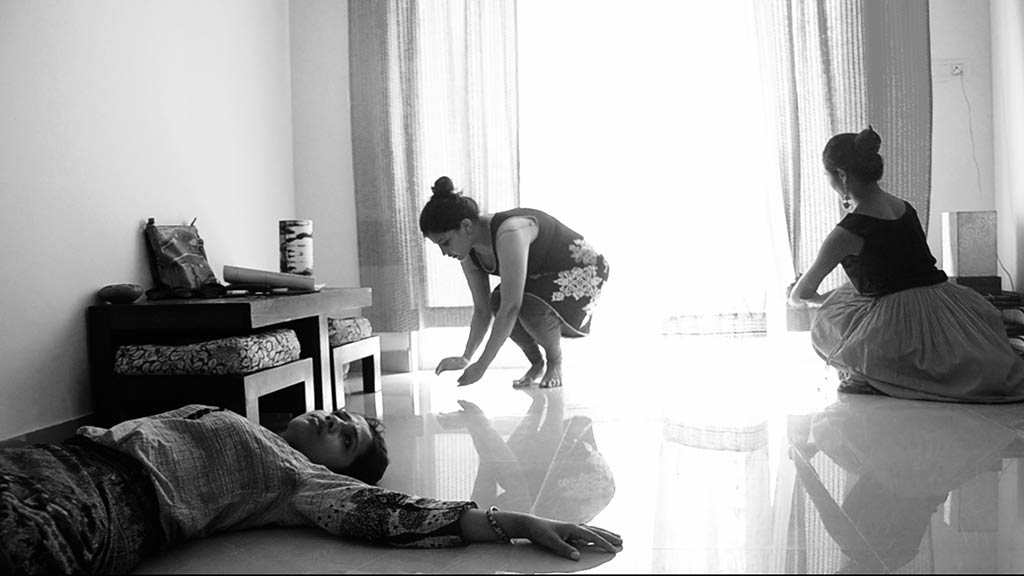
Bharti, the woman that I am, is not fond of quiet. This was another challenge for me. This play’s strength was that it taught me to voice through the use of silence. Mrinal, through the silent means of the letter, chose to live a different life. I hope, someday, I am able to achieve such silence and through its strength can fight this masked society.
Last night I heard the calm of silence
Last night I heard the voice of silence
Last night I heard the twitch of the heart
Yet last night I heard the scream of the heart
Share